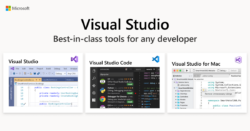Who is React Native for?
- Designers
- Developers
- Educators
- Entrepreneurs
- Students
Why you should find out more
- React Native has been used to build over 1 Million Apps
- React Native is the Most Popular Cross-Platform Mobile Development Framework
- React Native is used by Fortune 500 Companies such as Facebook, Instagram, Skype, Tesla, and Walmart
What are the benefits of React Native?
- Cross-Platform
- High Performance
- Native UI
- Open Source
Things to consider
- Debugging Difficulties
- Learning Curve
- Performance Issues
- Platform Limitations
React Native: A Comprehensive Overview
React Native is a JavaScript framework for building native mobile applications for iOS and Android. It is an open-source platform developed by Facebook and is used by developers to create cross-platform mobile applications. React Native is based on React, a JavaScript library for building user interfaces. It allows developers to use React along with native platform capabilities to build mobile applications that are indistinguishable from native applications built with Java or Objective-C.Who Should Use React Native?
React Native is ideal for developers who want to create cross-platform mobile applications with a single codebase. It is also suitable for developers who want to create native-like applications with the help of JavaScript. React Native is also suitable for developers who want to create applications with a native look and feel.Key Benefits and Features
- Cross-platform: React Native allows developers to create applications for both iOS and Android with a single codebase.
- Native look and feel: React Native allows developers to create applications with a native look and feel.
- Faster development: React Native allows developers to create applications faster than traditional native development.
- Open-source: React Native is an open-source platform, which means developers can access the source code and make changes as needed.
How Does React Native Compare to Its Competitors?
React Native is a popular choice for developers who want to create cross-platform mobile applications. It is a powerful and flexible platform that allows developers to create applications with a native look and feel. React Native is also faster than traditional native development, which makes it a great choice for developers who want to create applications quickly. React Native is also open-source, which means developers can access the source code and make changes as needed. In comparison to its competitors, React Native is a powerful and flexible platform that allows developers to create applications with a native look and feel. It is also faster than traditional native development, which makes it a great choice for developers who want to create applications quickly. Additionally, React Native is open-source, which means developers can access the source code and make changes as needed.Designers
Keep up to date about Cross-Platform Development offers like React Native
Privacy| Features |
|---|
Help & Support
- How do I get started with React Native?
- To get started with React Native, you can follow the official Getting Started guide on the React Native website.
- What is React Native?
- React Native is a JavaScript framework for writing real, natively rendering mobile applications for iOS and Android.
- What platforms does React Native support?
- React Native supports both iOS and Android platforms.
- What language is used to develop React Native apps?
- React Native apps are written in JavaScript and can be deployed to both iOS and Android platforms.
- What are the benefits of using React Native?
- React Native offers a number of benefits, including faster development cycles, improved user experience, and the ability to reuse code across multiple platforms.
- What libraries are available for React Native?
- React Native has a number of libraries available, including React Navigation, React Native Elements, and React Native Vector Icons.
Comparisons
JavaScript for Designers
JavaScript for Developers
Mobile Development for Developers
JavaScript for Educators
Cross-Platform Development for Entrepreneurs
Other Cross-Platform Development
Other Hybrid App Development
Other JavaScript
 React Native / Adobe Dreamweaver
React Native / Adobe Dreamweaver React Native / Atom
React Native / Atom
 React Native / IntelliJ IDEA
React Native / IntelliJ IDEA
 React Native / Ionic
React Native / Ionic React Native / PhoneGap
React Native / PhoneGap
 React Native / JavaScript
React Native / JavaScript React Native / JSFiddle
React Native / JSFiddle React Native / NestJS
React Native / NestJS
 React Native / Bootstrap
React Native / Bootstrap


